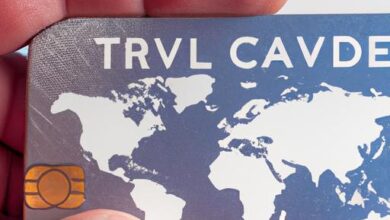Can Traveling Be a Hobby?

Have you ever wondered if traveling could be more than just a leisure activity? Something that can truly be considered a hobby? Well, let’s dive into the intriguing world of hobbies and explore whether traveling fits the bill.
Introduction to Hobbies
First, let’s establish what exactly constitutes a hobby. A hobby is a regular activity done for pleasure and personal enjoyment, often pursued during one’s free time. It provides a sense of fulfillment, allowing individuals to engage in something they are passionate about. Hobbies can range from collecting stamps, painting, playing an instrument, to various recreational activities.
Traveling as a Potential Hobby
Now, let’s turn our attention to traveling. We all know the joy of exploring new destinations, experiencing different cultures, and creating unforgettable memories. But can we consider it a hobby? Absolutely! Traveling offers an incredible avenue for personal growth, self-discovery, and expanding our horizons.
Overview of the Main Argument
In this article, we will delve into the argument of whether traveling can be classified as a hobby. We will explore the characteristics of hobbies and evaluate how traveling measures up to those criteria. Additionally, we will consider the benefits of traveling as a recreational activity and address counterarguments that may challenge its classification as a hobby.
So, fasten your seatbelts and get ready to embark on this captivating journey. Let’s unravel the question: Can traveling truly be considered a hobby?
Exploring the Concept of Hobbies
Defining characteristics of a hobby
To determine whether traveling can be considered a hobby, it is crucial to understand the defining characteristics of a hobby. Hobbies are activities that bring joy, fulfillment, and a sense of personal satisfaction. They are pursued voluntarily during leisure time, reflecting an individual’s interests and passions.
Common examples of hobbies
Hobbies come in various forms, catering to diverse interests and preferences. Some common examples include gardening, photography, cooking, painting, reading, and playing sports. These activities provide individuals with an outlet for creativity, relaxation, and personal expression.
Criteria for evaluating whether traveling can fit the definition of a hobby
Now, let’s assess whether traveling meets the criteria to be classified as a hobby. Firstly, a hobby should bring pleasure and personal enjoyment. Traveling unquestionably fulfills this criterion, as it offers unique experiences, excitement, and the opportunity to explore new places.
Secondly, a hobby is typically pursued during one’s free time. Traveling perfectly aligns with this principle, as it allows individuals to plan trips and embark on adventures during their leisure hours or vacations.
Lastly, a hobby reflects an individual’s interests and passions. While some may argue that traveling is merely a leisure activity, it goes beyond that. People who have a genuine passion for travel actively seek out new destinations, immerse themselves in different cultures, and constantly expand their knowledge and understanding of the world.
Considering these criteria, it becomes apparent that traveling possesses the essential characteristics of a hobby. It brings joy, is pursued during free time, and aligns with individual interests and passions. However, let’s explore this further and delve into the arguments surrounding traveling as a hobby.
Traveling as a Hobby: Arguments in Favor
Benefits of Traveling as a Recreational Activity
When we embark on a journey, we open ourselves up to a myriad of benefits that make traveling an exceptional recreational activity. Let’s explore these advantages:
-
Expanding Horizons and Cultural Awareness: Traveling allows us to step out of our comfort zones and immerse ourselves in different cultures, traditions, and perspectives. It broadens our understanding of the world, fostering tolerance and empathy.
-
Personal Growth and Self-Discovery: Traveling presents us with opportunities for personal growth and self-discovery. It pushes us to confront new situations, overcome challenges, and develop resilience. Through these experiences, we gain a deeper understanding of ourselves and our capabilities.
-
Health and Well-being Improvements: Traveling offers a break from our daily routines, enabling us to relax and rejuvenate. It reduces stress levels, improves mental well-being, and promotes overall happiness. Additionally, exploring new environments often involves physical activities, leading to improved fitness.
Investment in Travel-Related Skills and Knowledge
Engaging in traveling as a hobby also involves acquiring valuable skills and knowledge that are directly related to the travel experience. Consider the following:
-
Trip Planning and Research: Planning a trip involves meticulous research, including selecting destinations, finding accommodations, and creating itineraries. These skills enhance our organizational abilities and attention to detail.
-
Language and Communication Skills: Traveling exposes us to different languages and cultures, leading to the development of language skills and improved communication abilities. Learning basic phrases or even becoming fluent in a foreign language adds a valuable asset to our skill set.
-
Navigation and Adaptability: Navigating through unfamiliar territories, whether it’s using public transportation or reading maps, hones our problem-solving skills and adaptability. We become adept at handling unforeseen circumstances and embracing spontaneity.
By engaging in travel-related activities, we not only enjoy the adventure of exploring new places but also invest in skills and knowledge that can be applied in various aspects of our lives. Traveling truly offers a holistic experience that goes beyond mere leisure.
Counterarguments: Traveling as a Leisure Activity, Not a Hobby
Distinguishing Characteristics of Leisure Activities
While some argue that traveling may not fit the criteria of a traditional hobby, it can be seen as more of a leisure activity. Leisure activities are often characterized by their casual nature and lack of long-term commitment. Traveling, for many, falls into this category as it is often pursued sporadically and without a dedicated routine.
Limited Commitment and Sporadic Engagement in Traveling
Unlike traditional hobbies that require regular engagement and consistent commitment, traveling can be seen as less structured and more flexible. Many individuals embark on trips during vacation periods or whenever they have the opportunity, making it less of a devoted pursuit and more of a recreational pastime.
Lack of Specialized Skills or Hobbies within the Broader Travel Experience
Another aspect that may challenge the classification of traveling as a hobby is the lack of specialized skills or hobbies within the broader travel experience. While traveling can provide opportunities for various activities like photography, hiking, or cooking local cuisine, these activities are often seen as extensions or components of the overall travel experience, rather than standalone hobbies.
So, while it is true that traveling may not possess all the characteristics traditionally associated with hobbies, it still holds immense value as a leisure activity. The flexibility and freedom it offers make it an accessible and enjoyable pursuit for many. However, let’s not stop here. There is another side to the argument that we will explore further in the upcoming sections.
Finding Balance: Combining Traveling with Other Hobbies
Integration of Travel Experiences into Existing Hobbies
As avid travelers, we often find ourselves yearning for ways to incorporate our love for exploration into our existing hobbies. The beauty lies in the ability to merge these passions, creating a harmonious blend of experiences. For instance, if you enjoy photography as a hobby, imagine capturing stunning landscapes and vibrant cultures during your travels, adding a new dimension to your photographic journey. By integrating travel experiences into your existing hobbies, you can infuse fresh inspiration and invigorate your creative pursuits.
Identifying Complementary Hobbies to Enhance the Travel Experience
On the flip side, traveling can ignite a spark of curiosity and lead us to discover new hobbies that perfectly complement our adventures. Whether it’s learning a new language, trying out local culinary delights, or engaging in outdoor activities like hiking or scuba diving, traveling opens doors to a plethora of hobbies waiting to be explored. These complementary hobbies not only enhance our travel experiences but also provide us with valuable skills and knowledge that can be carried forward even when we’re not on the road.
Examples of How Traveling Can Inspire and Fuel Other Hobbies
The connection between traveling and other hobbies is not limited to just a few examples. It’s a boundless realm of possibilities that can ignite our passions and lead us down exciting paths. For instance, immersing yourself in different cultures while traveling can spark an interest in learning traditional dances or playing indigenous musical instruments. Exploring diverse cuisines during your journeys may inspire you to experiment with cooking and create fusion dishes that reflect your global palate. The experiences gained from traveling have the potential to fuel and transform our hobbies, resulting in a rich tapestry of interests and skills.
So, whether you integrate travel experiences into your existing hobbies or discover new ones along the way, finding the balance between traveling and other pursuits can enhance your overall journey and make it even more fulfilling. Let your travels become the catalyst for a vibrant tapestry of hobbies that enrich your life in countless ways.
Conclusion
After a thorough exploration of the topic, it is evident that traveling can indeed be considered a hobby. While some may argue that it falls more under the category of a leisure activity, the numerous benefits and characteristics of hobbies align with the experience of traveling.
Throughout this article, we have discovered that traveling offers vast opportunities for personal growth, cultural awareness, and self-discovery. It allows us to develop skills such as trip planning, adaptability, and communication, which are integral to engaging in a hobby. Moreover, the integration of travel experiences into existing hobbies and the inspiration it provides to fuel other passions further solidify its status as a hobby.
However, it is important to note that each individual’s perspective may differ. Some may engage in traveling purely for leisure and relaxation, while others may delve deeper into the exploration and learning aspects. Ultimately, it is up to you to define how you perceive and engage with traveling as a hobby.
So, whether you embark on a journey to explore new landscapes, immerse yourself in different cultures, or simply follow your wanderlust, embrace the idea that traveling can be more than just a leisure activity—it can be a fulfilling and enriching hobby.
Now, it’s time to pack your bags, create unforgettable memories, and let your passion for traveling guide you on your next adventure. Bon voyage!
Conclusion: So above is the Can Traveling Be a Hobby? article. Hopefully with this article you can help you in life, always follow and read our good articles on the website: Game Zone



